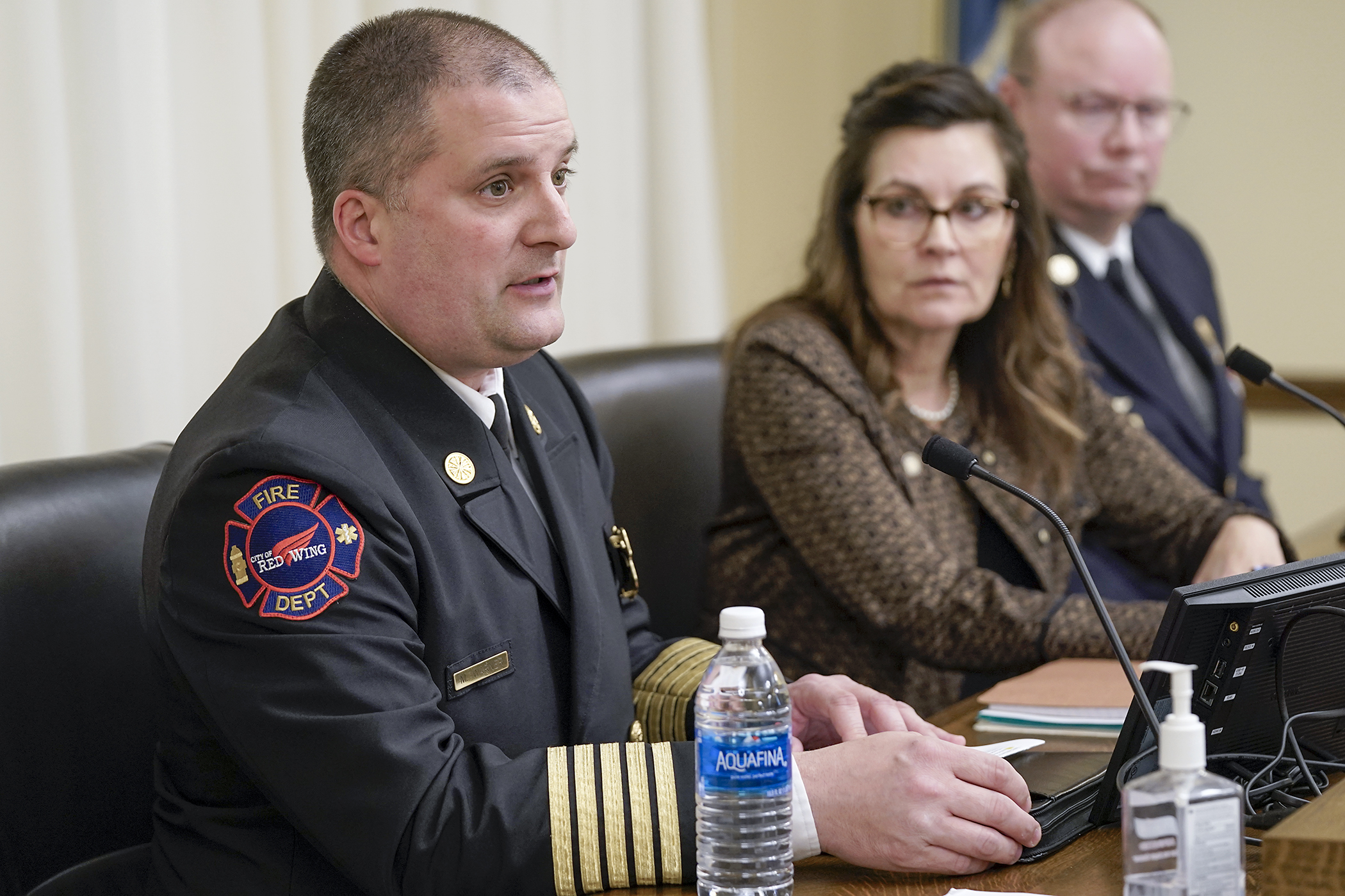Proposed grant program aims to prevent rural ambulance services from going further into red
Last year, the Legislature sent $24 million to struggling ambulance services that were hemorrhaging dollars.
Those funds won’t permanently stop the bleeding or even act as a bandage. It’s more like direct pressure on a wound, said Rep. Jeff Backer (R-Browns Valley), who volunteers for an ambulance service and chairs the House Health Finance and Policy Committee.
A possible permanent solution offered in HF337 is a grant program to prevent ambulance services from slipping further into the red.
Rep. Natalie Zeleznikar (R-Fredenberg Township) sponsors the bill, which, as amended, was laid over by the health committee Monday. Zeleznikar divided the amendment to remove portions of the bill that would impose a fee on cell phones to fund the grant program.
 Red Wing Fire Chief Mike Warner testifies in support of HF337 before the House Health Finance and Policy Committee Feb. 24. Sponsored by Rep. Natalie Zeleznikar, the bill would establish an ambulance operating deficit grant program. (Photo by Michele Jokinen)
Red Wing Fire Chief Mike Warner testifies in support of HF337 before the House Health Finance and Policy Committee Feb. 24. Sponsored by Rep. Natalie Zeleznikar, the bill would establish an ambulance operating deficit grant program. (Photo by Michele Jokinen)The bill is not a finished product, but it introduces legislators to a possible solution for rural ambulance services that are losing millions of dollars each year and are sometimes reimbursed at less than 25 cents on the dollar for transporting patients.
“We will turn over every rock to ensure that, regardless of where you live, if you need an ambulance, one will get to you,” Zeleznikar said.
The grant program would be for ambulance services operating outside the seven-county metro area, Rochester and Duluth. Specific challenges for rural services include having larger areas to cover, fewer paid runs to support overhead costs, a higher percentage of reimbursements from Medicare and Medicaid and heavier reliance on volunteers.
According to Tim Meyer, Sanford Health’s senior director of emergency services, the long-term viability of services staffed by volunteers is questionable, putting rural emergency services at risk.
Rep. John Huot (DFL-Rosemount), who is also an emergency medical technician, is concerned that ambulance services could automatically get a grant without being accountable to local governments.
Additionally, he said metro areas are also struggling with response times. “We need to look at this as a statewide program.”
Related Articles
Search Session Daily
Advanced Search OptionsPriority Dailies
Legislative leaders set 2026 committee deadlines
By Lisa Kaczke Legislative leaders on Tuesday officially set the timeline for getting bills through the committee process during the upcoming 2026 session.
Here are the three deadlines for...
Legislative leaders on Tuesday officially set the timeline for getting bills through the committee process during the upcoming 2026 session.
Here are the three deadlines for...